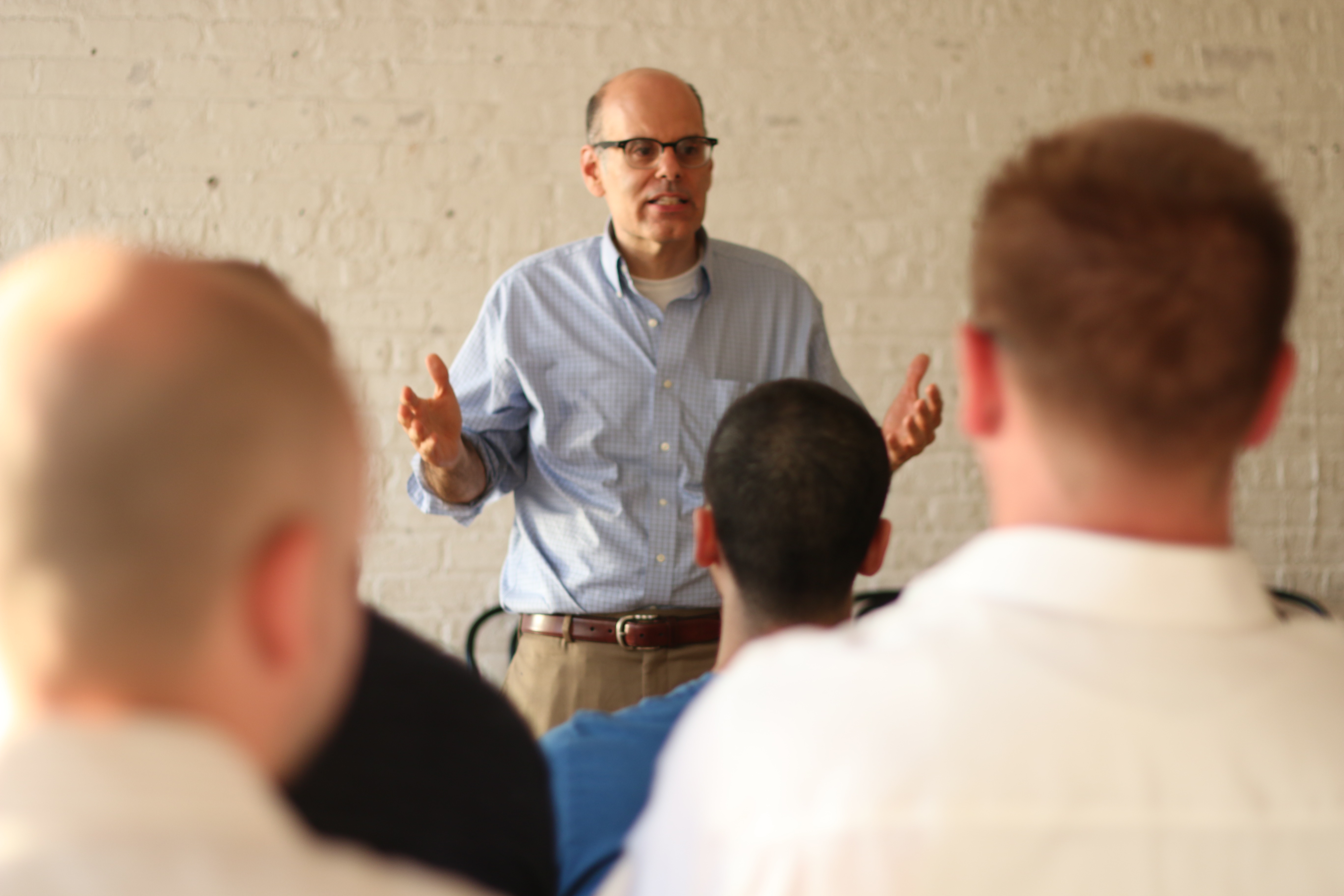What Is the Art of Slow Comedy?

This summer I taught two sold-out weekends of my Art of Slow Comedy intensives, and after the first two-day intensive, one my students from Denmark asked me: "What is the Art of Slow Comedy?"
That is hard question to answer since I have evolved and so has my teaching. After I explained it, he said, "You should have said that at the beginning of the workshop. It would have been a lot more helpful."
He was right. Believe me, I am not beyond learning from my students. So guess what? The next weekend, I explained my philosophy at the start of the workshop.
So what is my teaching philosophy in the Art of Slow Comedy? It is very simple: I want my students to start learning to be believable on stage. It’s the thing that separates a good improviser from a great one. It’s a superpower that will make you stand out from the rest.
All of the great improvisers I have either worked with or watched have had one thing in common: You believe every word that comes out their mouths. Whether they are playing some big character or an aspect of themselves, we believe them. Some would call this acting. That’s why I teach a hybrid of acting and improv.
I often say that you need to be real before you can be funny, and I truly believe this is the case. Now, I know some improvisers are brilliant with being clever and witty, and for the 10 percent of you who can pull this off, you have my support. For the rest of us, if we commit to being believable to the relationship and scene we are in, we can transform improv into to theater. Yes, it sounds pretentious, but it happens.
One way to be more believable in your improv, you have to emotionally react to your scene partner. This will not only give you some more life on stage, but it will also give you an opportunity to develop a point of view for your character. If your scene partner is playing your mom and she says that she’s going to come stay with you, you can be excited, or pissed off, or scared. I don't care what your reaction is, but the point is you have to have an emotional response to the information that given by your partner. My students always make the same discovery when working this way. They realize that by putting the emotions first, the words comes easily. They sound natural and real, and yes, most of the time they find the funny, but only after focusing on the emotions
Another way to become more believable in your improv is to talk like a real person would speak in real life. We do this by slowing down, shutting up, and responding to last thing our partner said. The slowing down part comes in the listening. Ask yourself, what is my partner really saying to me and how are they saying it? If they are saying, "I love you," are they saying it sarcastically or do they mean it? By shutting up, we stop rambling and create a space for our partner to respond. In theory, it should work like this: You say a line and then you don't speak again until your partner responds. Yes, it’s uncomfortable and scary, but when you start doing this, you can very organically start building off the last thing your partner said. You can start making discoveries by making assumptions about the characters’ relationship, history and situation.
When we work this way, specifics come easily, dialogue is natural. We start to surprise ourselves and our partners and our improv become spontaneous, easy, and guess what? Even fun.


Thanks for spelling this out, Jimmy! It's something that I already know and is critical to good acting...and improv, but is always good to be reminded of and given the chance to absorb it all over again!😊👍🏻
Jimmy, Del Close used to say the improvisation is not really acting but its more like a sport. I learned a lot form him but when he started to express these ideas I felt that he was wrong on that point for just those reasons that you have laid out here. I always felt that no matter what kind of scene that you are in the main focus of the scene is the relationship between the characters and the emotions that they bring the scene.